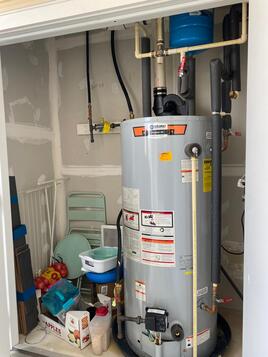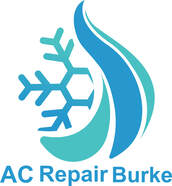|
It's time to investigate more if you return home to find a pool of water beneath your water heater. Leakage of water may indicate that your water heater requires repair and that there is a problem. We'll go over some of the most typical causes of hot water heater leaks as well as solutions for you to try. We also offer some insightful advice and practical hints on how to keep your water heater in good working order and prevent future expensive repairs. 1:- Ruling Out CondensationYou suspect a problem when you notice water on the floor near your water heater. You must first rule out any other possible causes of water. One possible reason for water surrounding your water heater could be condensation. (a):- Condensation on a Gas Hot Water HeaterGas water heaters with high efficiency may produce harmless-looking condensate that may appear to be leaking. This is how condensation can be recognized:
(b):- Condensation on an Electric Water HeaterThe hot cylinder tank of an electric hot water heater can condense since it is situated in a chilly room. By cleaning the outside of your hot water heater and observing if the moisture returns in a uniform manner over the surface, you may check for condensation. If it does, it resembles condensation the most. (c):- Look for Other CausesMake sure the source of the water leak isn't coming from your furnace, air conditioner, or any other related systems, such as water softener lines, if your HVAC system and hot water heater are in the same room. Inspect the water supply lines that provide your water heater with water as well. The issue may be caused by leaky pipes or lines above or below the water heater (read on for solutions). 2:- Turn Off Power SupplyAfter confirming that the water heater is leaking, shut off the electricity (for electric heaters) or gas (for gas heaters). Since water and electricity don't mix, this is an important step that you should never omit! It's best to get a professional right away if you feel uneasy handling gas or electric water heaters. Don't tamper with any gas pipes; instead, leave that to the professionals. Locating Your Gas Shut-Off ValveYour water heater should normally include instructions on the front that describe how to shut off the gas valve. Look for the shut-off valve next to your water heater if you are unable to locate it there. You can totally cut off the gas supply by turning a knob or lever on this device, which is often found at the top of the heater. Locating Your Power BreakerMake sure the circuit breakers in your electrical panel are off if you have an electric water heater. Look for a label on your electric panel or use the graphic on the panel door to assist you identify the correct breaker if you are unable to determine which one regulates the water heater. After you've located it, turn it to the OFF position. 3:- Turn Off Water SupplyCutting off your water supply completely is another safety precaution. Find your main shutoff valve and turn it off to accomplish this. Usually, you can find this outside on the curb or in the basement. You should turn off the cold water supply for your hot water heater in addition to turning off the main line of your water supply. To accomplish this, locate the hot and cold water valves on your hot water heater. Usually, your cold water supply is designated in blue, and your hot water supply is marked in red. Turning off the cold water will assist in limiting the amount of additional water damage caused by leaks. 4:- Establishing The Source of Your LeakIt's time to identify the source of your water heater leak now that you've turned off your main line, the cold line supply, and the gas or electricity. 5:- Common Reasons for a Leaking Water HeaterThe most frequent reason water heaters leak is from a broken or malfunctioning pressure release valve. When this valve malfunctions, hot water may begin to seep out of the water tank because it keeps pressure from building up within. Other such reasons could be:
(a):- Water Leaking From The TopYour hot or cold water inlets, which supply water to your pipes when needed and into the tank for heating, may be the source of any standing water at the top of your water heater. Your water heater may leak from the top due to loose pipe connections. Tip: Use a pipe wrench to tighten the cold and hot water inlet pipes. (b):- Water Leaking From The SideYour heater's temperature pressure relief valve is probably the source of the water leak coming from the side. When too much pressure builds up inside the tank, the temperature pressure relief valve acts as a safety feature to let hot water and steam out of the container. Tip: Verify that the temperature is not higher than the advised 120 degrees. In case the temperature is appropriately adjusted but the leak persists, the valve is faulty and requires replacement. (c):- Water Leaking From The BottomA problem with the drain valve may be the cause of any water leakage you observe near the base of your water heater. When necessary, such as during maintenance, the drain valve is intended to empty the water tank. Tip: Replace the drain valve after checking it for corrosion. Adjust the valve slightly if there isn't any corrosion, but don't overtighten it as this could lead to harm. It might need to be replaced if tightening doesn't work. 6:- Avoid Future Issues with Regular MaintenanceIf none of the problems mentioned above are present when your hot water heater leaks, it can be the result of sediment or mineral deposits building up. An yearly flush of your water heater is crucial for preventive maintenance and routine upkeep. This can lessen the chance of a leak and help prevent the need for expensive repairs owing to buildup. You should also routinely inspect your hot water heater for any indications of damage or leaks to ensure optimal performance. If you do detect a problem, get in touch with an expert right once to have the problem evaluated and ensure that using your hot water is safe. Repairing or Replacing Your Water HeaterAlthough these require frequent maintenance, water heaters are a necessary component of maintaining the comfort of our homes. It's critical that you respond fast if you see water leaking from your water heater. Examine the system for any obvious symptoms of damage, and if your water heater is more than ten years old or requires frequent repairs, it may be time to replace it with a new one from a professional.
There are several benefits associated with a new water heater:
0 Comments
Leave a Reply. |
AuthorWrite something about yourself. No need to be fancy, just an overview. Archives
June 2024
Categories |
- Home
-
Services
- Residential HVAC >
-
Commercial HVAC
>
- Professional Commercial AC Services
- Professional Apartment AC Services
- Commercial HVAC Installations
- Commercial HVAC Services
- Commercial Plumbing Services
- Commercial Water Heater Services
- Commercial Refrigeration Services
- Commercial AC and Furnace Services
- Commercial AC Pump Services
- Commercial Rooftop Unit Services
- Commercial Duct Cleaning Services
- Commercial Heating Preventive Maintenance
- About Us
- Near Me
- FAQ'S
- Contact Us
- Free Estimate
- Resources
- Blog
- Home
-
Services
- Residential HVAC >
-
Commercial HVAC
>
- Professional Commercial AC Services
- Professional Apartment AC Services
- Commercial HVAC Installations
- Commercial HVAC Services
- Commercial Plumbing Services
- Commercial Water Heater Services
- Commercial Refrigeration Services
- Commercial AC and Furnace Services
- Commercial AC Pump Services
- Commercial Rooftop Unit Services
- Commercial Duct Cleaning Services
- Commercial Heating Preventive Maintenance
- About Us
- Near Me
- FAQ'S
- Contact Us
- Free Estimate
- Resources
- Blog
Local Service AreasHours of Operation
Monday 9:00 AM - 5:00 PM
Tuesday 9:00 AM - 5:00 PM Wednesday 9:00 AM - 5:00 PM Thursday 9:00 AM - 5:00 PM Friday 9:00 AM - 5:00 PM Saturday 9:00 AM - 5:00 PM |
Navigation |
Services |
Contact us |
Terms of service | Privacy Policy | Sitemap


 RSS Feed
RSS Feed
